His teeth gleamed white, his face was frozen in a grin, the very counterpart of the man on the floor. He lifted a warning finger. Zoe understood and covered her mouth with her hand to smother a scream. Her heart was beating madly as though she had just come up out of the water. "He's alive... He's alive..."
"You didn't kill me," said Garin in a whisper, continuing to shake his finger at her, "you killed Victor Lenoir, my assistant... Rolling will go to the guillotine..."
"Alive, alive..." she said hoarsely.
He took her by the elbows. She immediately threw back her head in complete surrender, offering no resistance. He pulled her towards him and feeling that her legs were giving way under her, put his arm round her shoulders.
"Why are you here?"
"I was looking for Gaston."
"What Gaston?"
"The man I sent to kill you."
"I foresaw that," he said, looking into her eyes.
She answered as though in a dream:
"If Gaston had killed you I would have killed myself."
"I don't understand."
She repeated his words as though in a trance, in a soft, falling voice:
"I don't understand myself."
This strange conversation took place in the doorway. The moon, sinking behind the slate roofs, shone through the window. Against the wall Lenoir grinned.
Garin spoke in a low voice.
"You've come for Rolling's autograph?"
"Yes. Have mercy."
"On whom? On Rolling?"
"No. On me. Have mercy on me," she repeated.
"I've sacrificed my friend in order to ruin your Rolling. I'm as much a murderer as you are. Mercy?... No .. . no..."
Suddenly he grew tense and listened. With a brusque movement he pulled Zoe out of the door. Still squeezing her elbow he looked through the arch on to the staircase.
"Come along. I'll take you out of here through the park. Listen, you're an unusual woman." His eyes flashed with mad humour. "Our paths have crossed. D'you feel it, too?"
Taking Zoe with him he ran down the spiral staircase. She did not resist, overcome by a strange sensation that surged up inside her like turbid wine just beginning to ferment.
On the lower landing Garin turned away into the darkness, stopped, lit a wax vesta, and with an effort opened a rusty lock that had obviously not been opened for years.
"You see I've thought of everything."
They went out under the dark, damp trees of the park. At that same moment a police squad, called for by Garin a quarter of an hour earlier on the telephone, entered the gateway from the street.
Shelga well remembered how he had lost a pawn at the house on Krestovsky Island. During their talk on the Trade-Union Boulevard he had realized that Pyankov-Pitkevich was certain to be back for what was hidden in the cellar of the cottage. That same day, at dusk, Shelga had gone back to the island, had entered the cottage without disturbing the watchman and descended into the cellar with a dark lantern. The pawn was lost right away: Garin stood two paces away from the trapdoor in the kitchen. Just a second before Shelga arrived he had climbed out of the cellar with a suitcase in his hand and had flattened himself against the wall behind the door. With a crash he closed the trap-door over Shelga's head and piled sacks of coal on it. Shelga raised his lantern and smiled ironically as dust poured down through the cracks in the trap-door. He intended to start peace negotiations. Suddenly, however, there was silence in the kitchen. Shelga heard running footsteps, revolver shots, and a wild scream. This was the tussle with Four-Fingers. An hour later the police arrived.
Having lost his pawn Shelga made a clever move. In the squad car he drove straight from the cottage to the Yacht Club, woke up the hoarse-voiced, tousled old sailor who served as caretaker and without more ado demanded:
"In what quarter is the wind?"
The old salt responded unhesitatingly:
"South-west."
"Strength?"
"Fresh to strong."
"Are you sure all the yachts are at their moorings?"
"I'm sure they are."
"Is there a night watchman there?"
"Yes, Petka."
"Let me take a look at the moorings."
"Aye, aye," answered the sailor, still half-asleep, fumbling to get his arms into the sleeves of his jacket.
"Petka!" he called in a hoarse voice that told of quantities of consumed spirit as they went out on to the club verandah. There was no answer. "He must be asleep somewhere, sink him," said the sailor, turning up his coat collar against the wind.
They found the night watchman near by in the bushes, snoring heartily with his head covered by the big collar of his sheepskin coat. The sailor let out a stream of profanity. The night watchman groaned and got up. They went out along the landing-stage where a forest of masts swayed above the steel-grey water, tinged blue by the approaching dawn. Waves broke against the landing-stage, there was a fresh wind blowing, with squalls.
"Are you sure all the yachts are in place?" asked Shelga again.
"The Orion isn't here, she's at Peterhof. And two boats were driven into Strelna by the wind."
Shelga walked along the spray-splashed landing-stage and picked up the end of a painter fastened to a ring—the rope had obviously been cut. The sailor slowly examined the end of the painter. He pushed his sou'wester forward on to his nose but said nothing. He walked along counting the yachts with his finger. Then he slashed at the air with his hand. Club discipline forbade the use of curses belonging to the imperialist past and so he confined himself to a number of vivid extraneous expressions.
"The so and so," he shouted with unbelievable vigour. "A marlinespike in his liver! He's taken the Bibigonda, the crack yacht in the fleet, the son of a bitch, a rope's end where he wouldn't like it... Petka, may you be thirty times drowned in stinking water, where were your eyes, you parasite, you lousy swede-basher? The Bibigonda's gone, damn your soul."
The night watchman Petka groaned, expressed astonishment, and beat his thighs with the long sleeves of his sheepskin coat. The sailor raced on before the wind into unfathomed depths of the Russian language. There being nothing left for him to do Shelga went off to the port.
At least three hours had passed before he reached the open sea in a swift motor-boat. There was a heavy swell running and the boat took a bad tossing. Spray dimmed the glass of his binoculars. When the sun came up a sail was sighted in Finnish waters far beyond the lighthouse and close offshore; it was the unfortunate Bibigonda tossing about amidst submarine crags. Her deck was deserted. They fired a few shots from the motor-boat just for the sake of doing something and returned with empty hands.
And so that night Garin had fled across the frontier, winning yet another pawn. Only he and Shelga knew of the part played by Four-Fingers in that game. Shelga's general train of thought on his way back to the port was somewhat as follows:
"Garin will either sell his mysterious apparatus or exploit it himself abroad. For the time being the invention is lost to the Soviet Union and who can tell but that it may play a decisive part in future events. Garin, however, is in danger abroad—Four-Fingers. Until he's disposed of, Garin won't dare bring his apparatus out into the open. If I take Garin's side in the fight I might win in the long run. In any case I couldn't do anything more foolish than arrest Four-Fingers in Leningrad, which is just what Garin wants." The conclusion to be drawn from this line of thought was simple enough. From the port Shelga went straight back to his own apartment, changed into dry clothes, rang up his office to inform them that the "case had petered out," cut off the telephone, and went to bed smiling at the thought of Four-Fingers, poisoned by gas and perhaps wounded, at that very moment, clearing out of Leningrad as fast as his legs would carry him. This was Shelga's answer to the "lost pawn."
Читать дальше
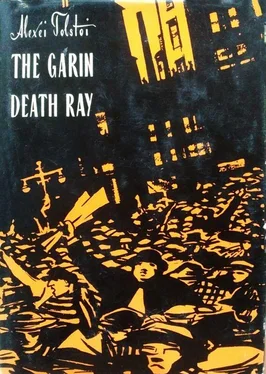


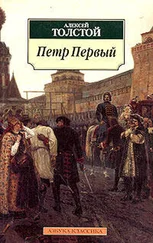
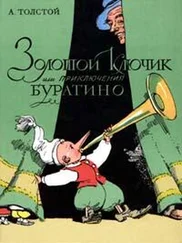
![Алексей Николаевич Толстой - Хождение по мукам [litres]](/books/26263/aleksej-nikolaevich-tolstoj-hozhdenie-po-mukam-litr-thumb.webp)
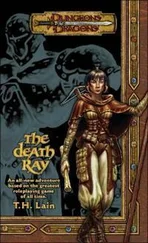

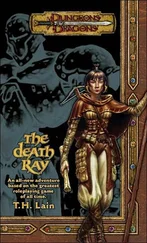


![Алексей Николаевич Толстой - Гиперболоид инженера Гарина. Аэлита [Художник Г. Зубковский]](/books/423486/aleksej-nikolaevich-tolstoj-giperboloid-inzhenera-ga-thumb.webp)
